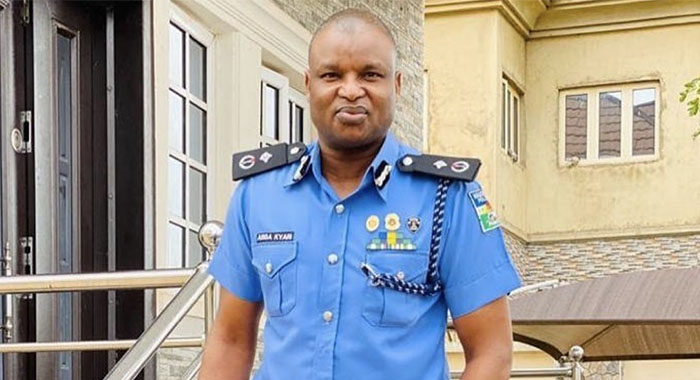The International Human Rights Commission (IHRC) has called on President Bola Tinubu to consider granting a strategic presidential pardon to the suspended Deputy Commissioner of Police, Abba Kyari, in the interest of national security.
The appeal was made in a statement released on Friday by the IHRC’s Head of Diplomatic Mission in Nigeria, Duru Hezekiah, and made available to journalists in Abuja. The commission emphasised that its call should not be misconstrued as an attempt to interfere with the ongoing judicial proceedings against Kyari, who is currently facing trial over cocaine trafficking and criminal conspiracy.
“Our position is not to circumvent justice or interfere with legal processes,” the statement read.
“Rather, we urge a future-focused, constitutionally grounded approach that recognises the tactical value of experienced security personnel—if found eligible under the law and subject to public accountability.”
Hezekiah explained that the rising wave of insecurity across Nigeria—from terrorism to banditry and organised crime—necessitates extraordinary strategic decisions. He therefore urged for a national dialogue involving civil society groups, security experts, and legal minds to deliberate on the feasibility of a conditional clemency framework.
“The future of Nigeria’s internal security may well rest on leveraging every available asset—including operationally experienced officers—within the bounds of law and justice.”
The IHRC cited Section 175 of the 1999 Constitution (as amended), which empowers the President to grant pardons, reprieves, and commutations. It stressed that such clemency, if granted, should not be seen as absolution or political favouritism, but as a pragmatic tool of national security.
The statement also referenced international precedents, including the U.S. government’s use of plea bargains and expert reintegration, as well as examples from post-conflict African states, where conditional amnesties were used to stabilise nations.
“Former hackers have been recruited to bolster cybersecurity. Ex-combatants have transitioned to peacebuilders under strict oversight,” the IHRC noted.
Calling Kyari a potentially “rehabilitated asset,” the IHRC argued that, if lawfully and transparently reintegrated, he could contribute significantly to Nigeria’s fight against crime. It proposed a conditional pardon, subject to public scrutiny and ongoing accountability measures.
“A conditional pardon for Kyari—subject to public accountability—could transform a controversial figure into a national asset,” the commission stated.
“Let this be a defining moment where justice, constitutionality, and national interest align.”
The IHRC urged stakeholders—including legal experts, civil society, and security policymakers—to engage in constructive discussions on harmonising justice with national security imperatives.
“This is a call for strategic statecraft, not political favouritism.
In times of national crisis, justice must be both redemptive and corrective. If used wisely, conditional clemency can bridge law enforcement accountability with long-term peacebuilding.”
Background
Abba Kyari, once lauded as one of Nigeria’s most effective anti-crime operatives, led major operations against terrorism, drug trafficking, and kidnapping. However, his career came under scrutiny in 2022 after he was indicted in a cocaine trafficking case and placed under prosecution by the National Drug Law Enforcement Agency (NDLEA).
His trial remains ongoing, with public opinion sharply divided over whether he deserves clemency or full legal consequence.
As national insecurity persists, the IHRC’s proposal has sparked fresh debate over how Nigeria balances justice, accountability, and security in times of crisis.



